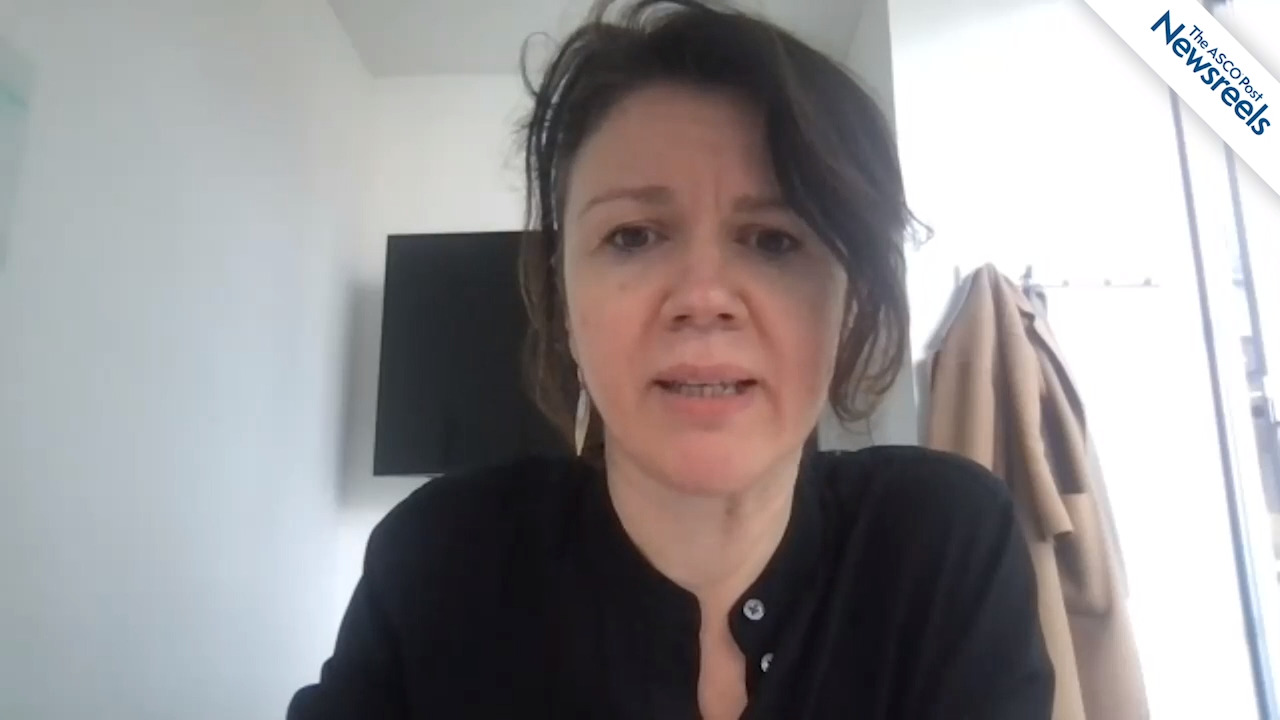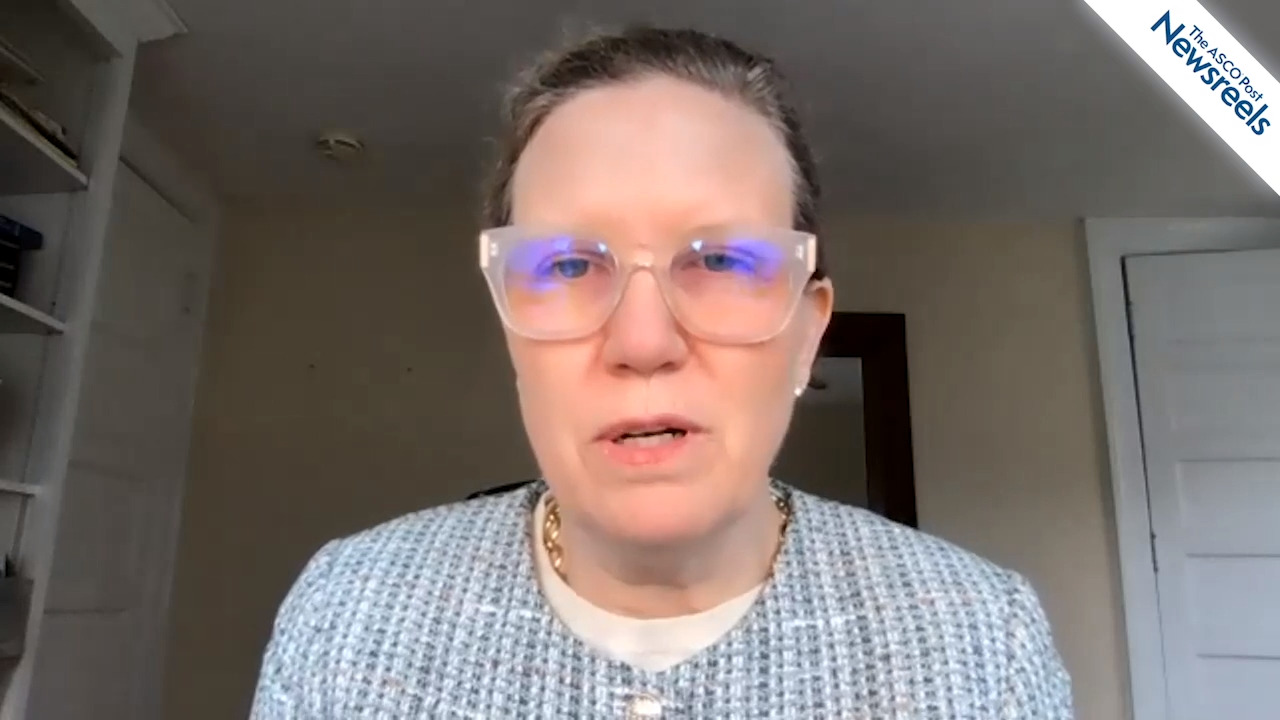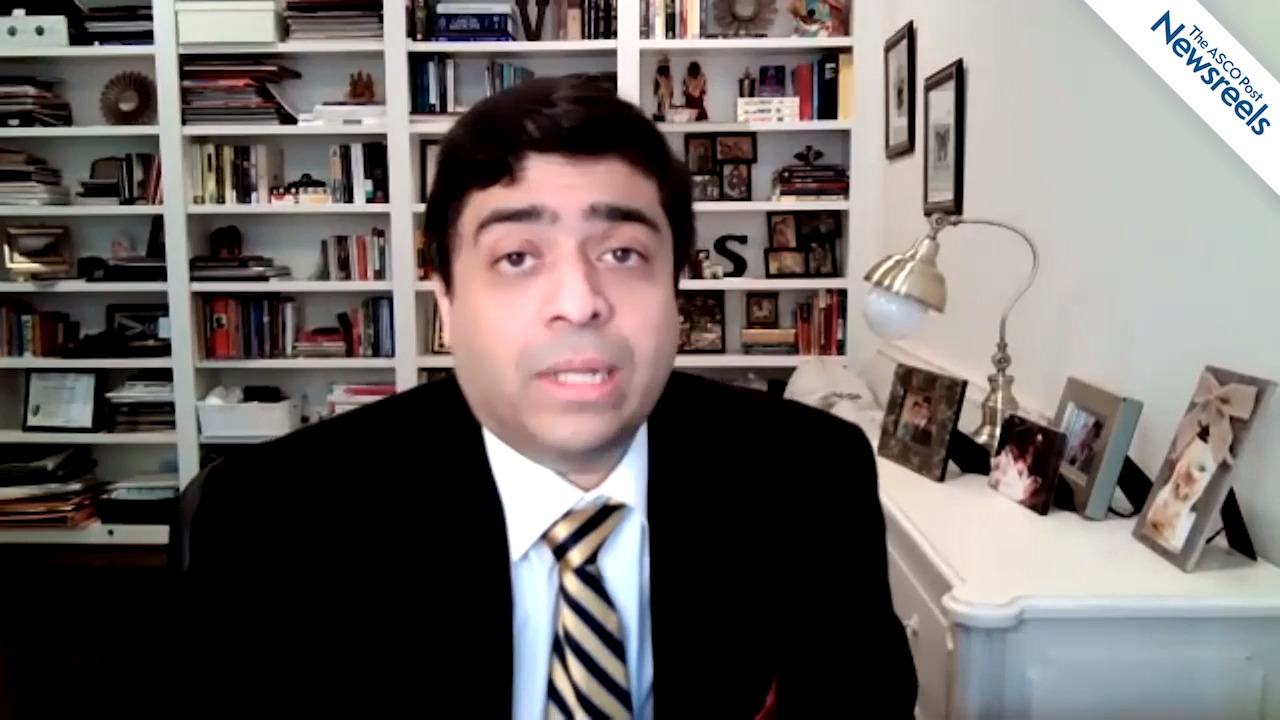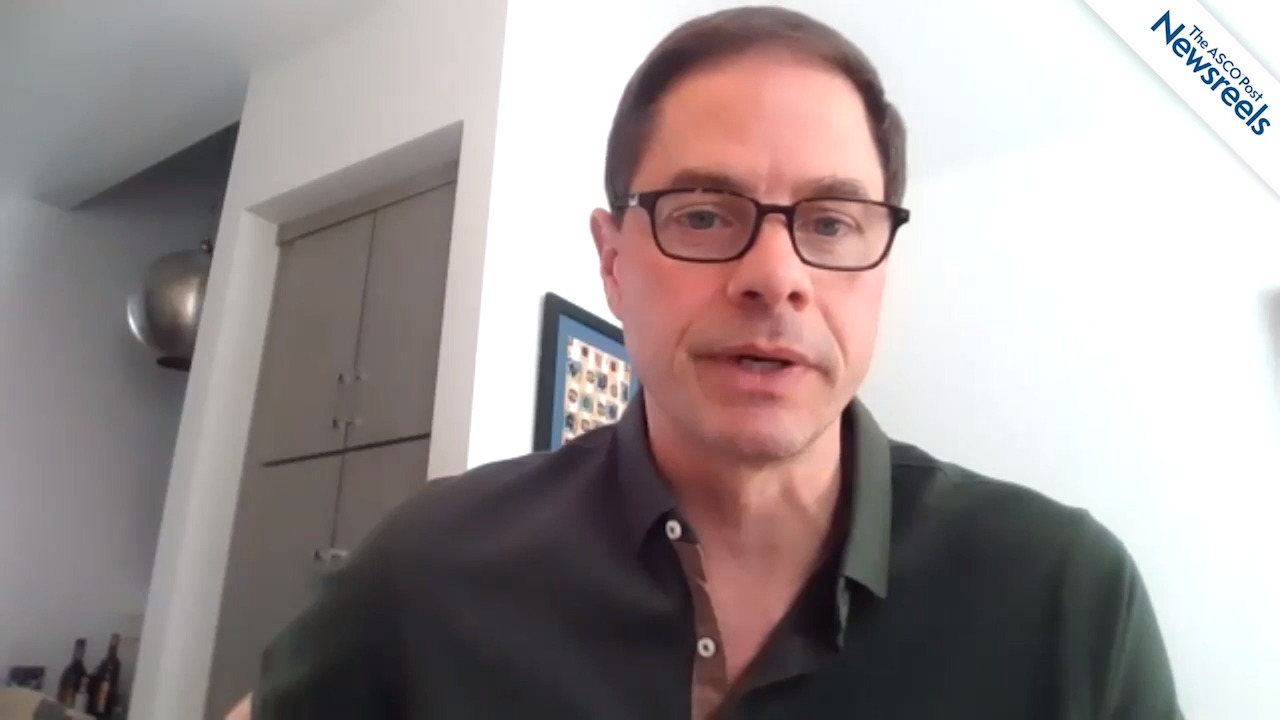Michel Sadelain, MD, PhD, on the Road to Synthetic Immunity: Novel CAR Designs
AACR Annual Meeting 2021
Michel Sadelain, MD, PhD, of Memorial Sloan Kettering Cancer Center, discusses the challenges in developing CAR T-cell therapy, as well as the progress being made, such as creating hybrid CAR and T-cell receptors that should enable T cells to recognize much lower levels of antigens. The field, he says, is poised to take on a range of solid tumors to extend the successes in hematologic malignancies.
The ASCO Post Staff
Samra Turajlic, MBBS, PhD, of The Francis Crick Institute, discusses our limited understanding of metastases in terms of the timing of dissemination, the many metastatic phenotypes and varieties of seeding, as well as how the spread of cancer evades the immune system and resists treatment. Expanding this knowledge base is critical to better managing malignant disease.
The ASCO Post Staff
Charlotte E. Ariyan, MD, PhD, of Memorial Sloan Kettering Cancer Center, discusses improved outcomes with metastasectomy in the setting of checkpoint inhibitors, with the removal of residual disease and “escape” lesions. Surgical outcomes may also be better than targeted treatments, although long-term data and biomarkers are needed to confirm these findings.
The ASCO Post Staff
Vivek Subbiah, MD, of The University of Texas MD Anderson Cancer Center, discusses data on selpercatinib that showed promising activity across a variety of RET fusion–positive cancers, including treatment-refractory gastrointestinal malignancies. This analysis highlights the need for genomic profiling to identify actionable oncogenic drivers.
The ASCO Post Staff
Georgina V. Long, MD, PhD, of the Melanoma Institute Australia, University of Sydney, discusses results of the CheckMate 915 trial, which may reinforce nivolumab as an adjuvant standard of care in patients with stage IIIB–D/IV melanoma, with or without complete lymphadenectomy (Abstract CT004).
The ASCO Post Staff
Brian I. Rini, MD, of Vanderbilt University, discusses the IMmotion151 trial results on overall survival and the association of gene expression and clinical outcomes with atezolizumab plus bevacizumab vs sunitinib in patients with locally advanced or metastatic renal cell carcinoma (Abstract CT188).





